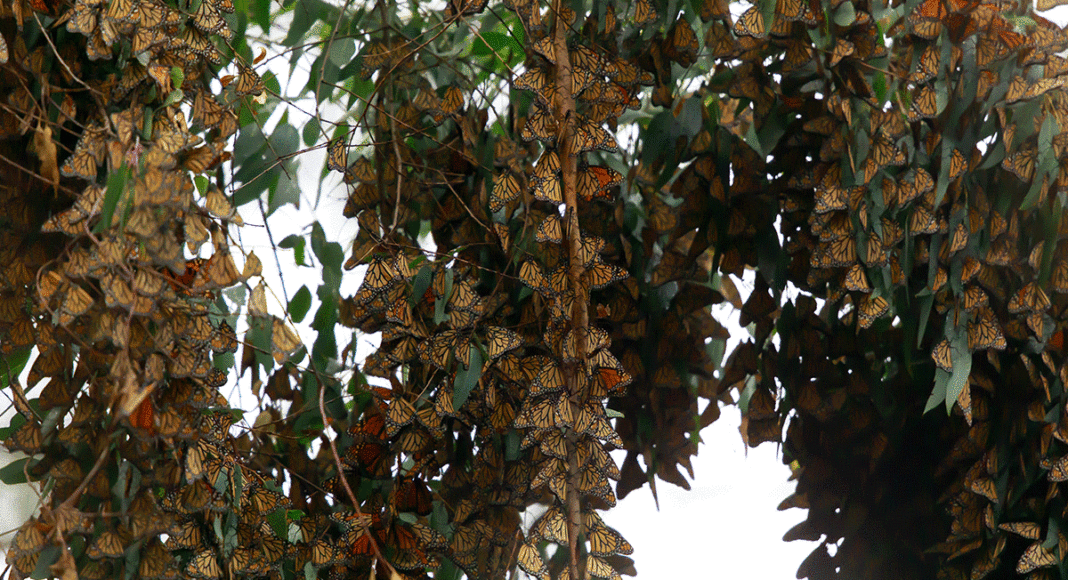In an effort to save Monarch butterflies, Assemblymember Mark Stone (D-Scotts Valley) has introduced Assembly Bill 2421—a $3 million piece of legislation to provide technical assistance and funding toward preserving and restoring the habitats of Monarch butterflies and other pollinators and across the state.
AB 2421 has so far received bipartisan support, having passed the state Assembly 64-7. It needs to go through the Senate before making its way to Gov. Jerry Brown’s desk, which is expected to happen next month. Brown has already earmarked $3 million for the bill in the upcoming budget, and it could have a significant impact on Santa Cruz.
Soon public agencies, nonprofits, farmers, ranchers, and other private land trusts should be able to receive funding, technical assistance, and guidance about how to preserve and restore overwintering grounds and pollinator breeding habitats from the Monarch and Pollinator Rescue Program (MPRP), which the bill establishes as part of the Wildlife Conservation Board (WCB).
Many scientists agree that things will get worse for the Monarchs before they get better, although the feds have shown little interest in listing the butterfly as endangered. Experts say there is more than a 70 percent chance that Monarchs will go totally extinct within the next two decades, according to Stone’s bill.
The populations of Monarchs and other pollinators are dwindling at a rapid rate. “Monarchs are at risk of a total collapse,” says Stone. “There were once millions of them on the Central Coast. Now there are a few hundred thousand.”
Migrating Monarchs bring in tourist dollars to Santa Cruz County. “It’s something that makes the Central Coast unique,” he says.
Under the bill, state parks like Natural Bridges would be able to apply for grant money from the MPRP, as needed. Stone says a significant portion of AB 2421 funding will go toward maintaining overwintering habitat for Monarch butterflies.
Although Monarchs are iconic and grab big headlines, Stone says other species of pollinators would benefit from AB 2421, too. Bees, for instance, are in trouble around the world, under siege from parasites and insecticides.
“We want to protect all pollinators,” says Stone. “They’re good for our agriculture, good for our entire ecosystem, and important to sustain human communities. Without pollinators, crops suffer because they cannot reproduce and grow.”
The MPRP will be in charge of doling out money, and providing other forms of assistance and support. Stone hopes that private money will enter the fund, too, to supplement the effort.












